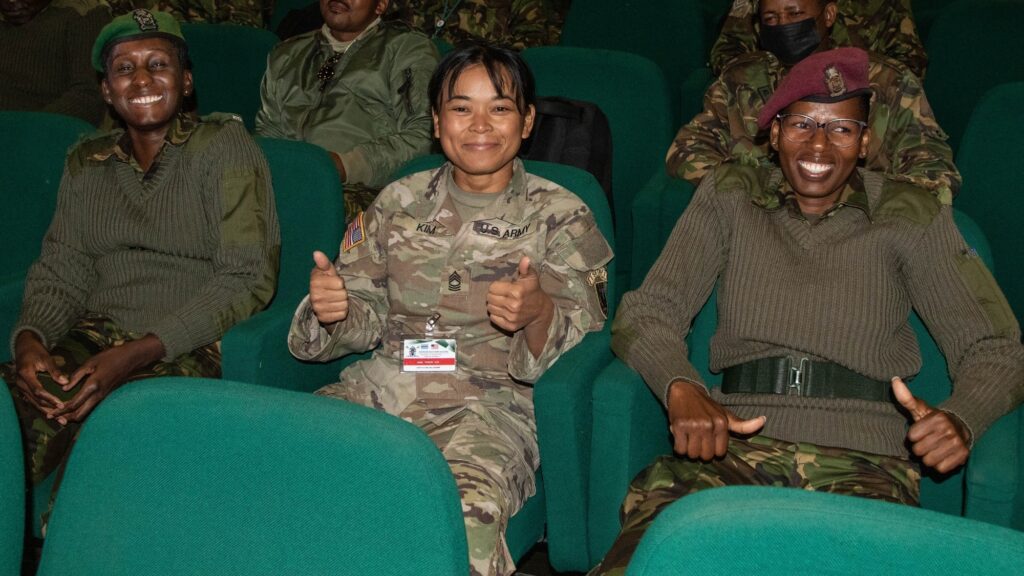U.S. and Botswanan military personnel recently participated in a three-day workshop aimed at improving the integration of women into Botswana’s army. The event, part of the larger Southern Accord 2024 program concluding on Thursday, addressed key issues such as sexual harassment and the need for tailored equipment for female personnel.

Major Teisha Barnes, military operations officer of the U.S. Army Southern European Task Force, Africa (SETAF-AF), highlighted the challenges women face in military service. “One of the big challenges is not letting women broaden their horizons and putting them in a box,” Barnes stated, emphasizing that limited opportunities often prevent women from rising to higher ranks.
Barnes detailed recent changes in the U.S. military to accommodate women, including modifications to uniforms and equipment. “We have made several changes in the U.S. over the last 10 to 15 years to accommodate women based on body type and changes to uniform just to help women feel more comfortable within the military,” she explained. Specific issues addressed included ill-fitting protective vests that could cause injuries and boots that were difficult for some women to break in due to weight differences.
Botswana Defense Forces Major P. Sergio acknowledged ongoing challenges for women in Botswana’s military, citing cultural beliefs as a significant barrier. “In our culture, men believe that women cannot join the army because it is tough and we are soft, we are not masculine,” Sergio said, adding that changing such perceptions will take time.

U.S. Ambassador to Botswana Howard Van Vranken stressed the importance of equal opportunities for women in the military. “It is [a] kind of approach to problem solving that incorporates everyone’s strength and enables us to bring everyone into the equation on an equal basis,” he stated, emphasizing the need for diverse contributions in addressing 21st-century security challenges.
The workshop is part of Southern Accord 2024, a broader initiative aimed at strengthening bilateral military capabilities. Brigadier General John LeBlanc, SETAF-AF deputy commanding general, reported that this year’s exercise, involving 700 military personnel, has been successful.
This collaborative effort between the U.S. and Botswana militaries represents a significant step towards addressing gender equality and integration issues in armed forces.
By sharing experiences and best practices, both nations aim to create more inclusive and effective military environments that fully utilize the talents of all personnel, regardless of gender.



